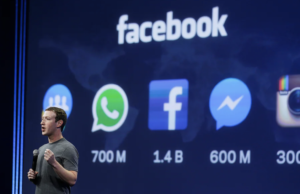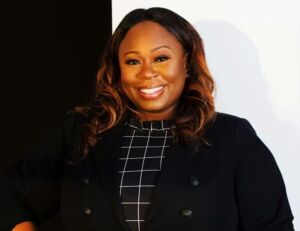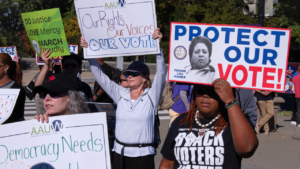 By Cristiano Lima, originally published in The Washington Post.
By Cristiano Lima, originally published in The Washington Post.
A civil rights expert who delivered a scathing indictment of Facebook’s record last year called whistleblower Frances Haugen’s allegations about the tech giant “deeply disturbing” and said they have “revived” concerns about how it addresses hate speech and other harms.
In a report set to be made public Wednesday, Laura Murphy, who Facebook tapped to lead a blockbuster two-year civil rights audit of the company in 2018, wrote that the revelations from internal documents serve as “a cautionary tale” demonstrating that conducting such reviews aren’t “a panacea for companies that are facing larger moral reckonings about their role in society.”
Murphy and her legal team sharply criticized the social network last July, accusing Facebook of prioritizing free speech above other values, such as safety, calling their actions a “tremendous setback” for the company. The long-awaited report was the culmination of years of scrutiny from civil rights leaders who have accused the giant of profiting off hate and allowing its platform to be abused by politicians.
Facebook took a number of steps to address those concerns over the course of the review, including committing to placing new protections discriminatory advertising, expanding its voter suppression policies and implementing a plan to protect the integrity of the U.S. census.
But in a new report laying out guidelines for how other companies can conduct audits, Murphy wrote that recent revelations eclipsed many of these key interventions. “Facebook’s recent crisis has alienated some key stakeholders and overshadowed many of the important and groundbreaking tangible outcomes yielded by its civil rights audit,” she wrote.
She added, “The allegations have revived longstanding civil rights criticisms of the company: how the platform is used to spread misinformation and disseminate hate speech; how the mental health of girls and young women is undermined; and, more generally, its status as an unregulated behemoth that seems to prioritize advertising revenue over preventing social harms.”
In response, Facebook Vice President for Civil Rights and Deputy General Counsel Roy L. Austin, Jr. said in a statement Tuesday, “Facebook is one of very few companies to support an independent civil rights audit and to make the results of that audit public.”
Austin, Jr., an Obama administration veteran, added: “There are no quick fixes to the issues and recommendations the auditors surfaced. Becoming a better company requires a deep analysis of how we can strengthen and advance civil rights at every level of our company, and we remain committed to doing that industry-leading work.”
In an interview with The Washington Post on Tuesday, Murphy said Haugen’s disclosures could shed light on the prevalence of hate speech and other harmful content on Facebook’s platforms, which the audit didn’t fully cover.
“We couldn’t know about the volume of hate speech on the platform … We didn’t know the extent of it,” she said. “We were focused on, ‘what do you do when you find it, and how do you develop stronger policies to enforce against it and contain it.”
Facebook has been rocked by Haugen’s disclosure of internal research showing, among other things, that employees have estimated the social media giant is only able to remove a small fraction of hate speech on its platforms, as little as 5 percent. Facebook CEO Mark Zuckerberg testified last year before Congress that the company removes 94 percent of the hate speech it finds before a human reports it.
Facebook has argued its enforcement efforts have significantly reduced the prevalence of hate speech on the platform, which they reported is less than 1 percent of all content viewed.
The report, authored by Murphy in conjunction with the Leadership Conference on Civil and Human Rights and the Ford Foundation, outlines best practices and recommendations for companies weighing launching civil rights audits.
The report urged companies to select “an independent person or firm with deep expertise in civil rights and racial justice” to conduct the reviews, and to ensure that they have institutional support from companies’ highest ranks.
Murphy, who conducted another high-profile civil rights audit of Airbnb in 2016, said any company that is “systemic to our economic success” should strongly consider undergoing such a review.
“The tech side is very important, especially the companies that have the biggest footprints, Google, Facebook, you know, Twitter, Amazon … Those companies have such huge shares of our economic and social activity and the way we receive information,” she said.




